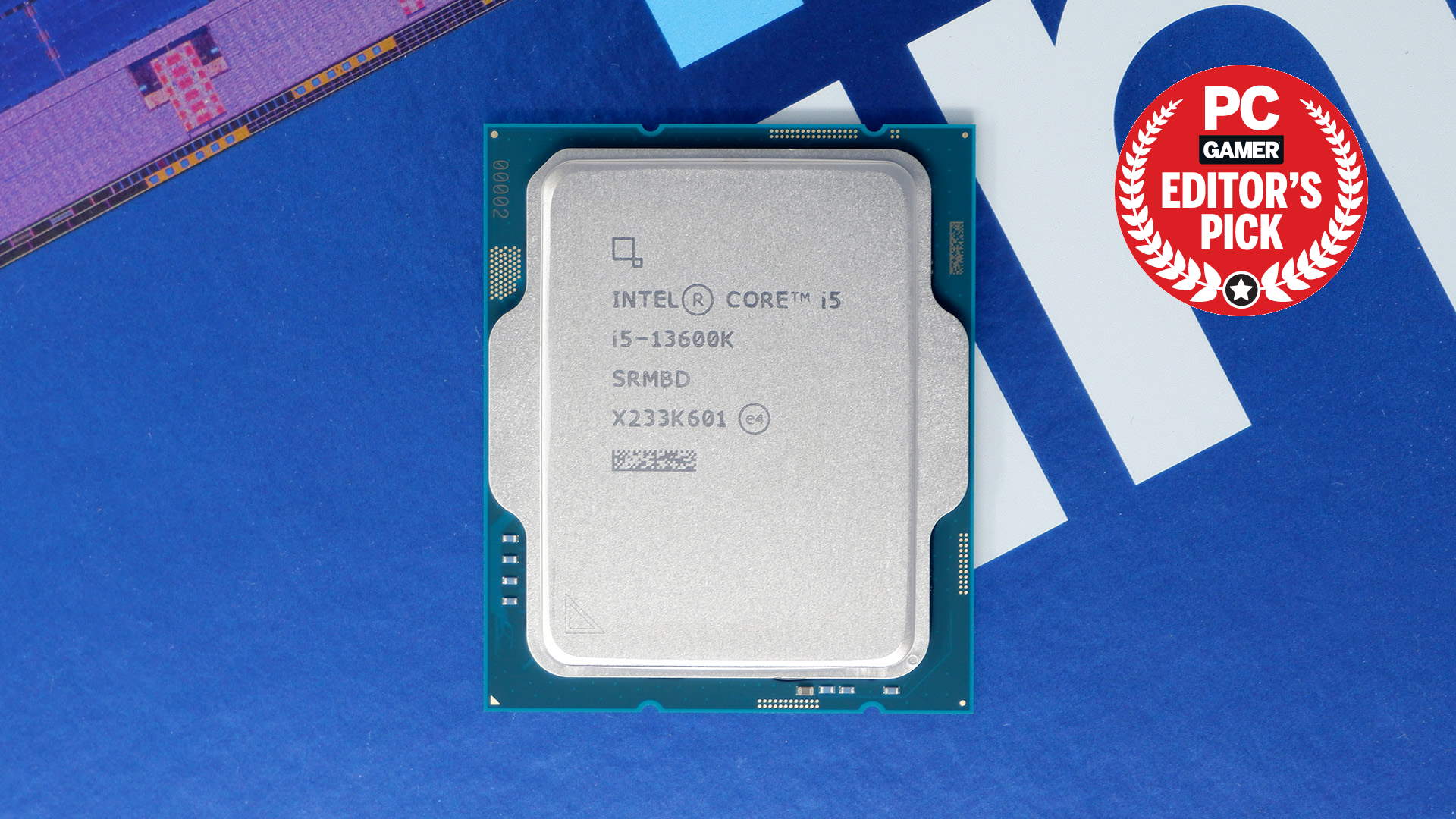Our Verdict
The Core i5 13600K deserves to be at the heart of your next gaming PC build.
For
- Gaming performance close to a Core i9 12900K
- Multithreaded performance close to a Core i9 12900K
- Basically a Core i9
- Fairly efficient
- Cheaper 600-series platform available
Against
- Hotter and hungrier than the Core i5 12600K
- Slower than last-gen in some games
PC Gamer's got your back
The Intel Core i5 13600K is another mighty mid-range chip from Intel, and you can expect a major uplift in core counts even with this more parsimoniously priced Raptor Lake chip. Well-tuned to deliver high gaming frame rates, this is ultimately the chip most gamers should consider first for their next gaming PC.
Cores (P+E): 6+8
Threads: 20
L3 Cache (Smart Cache): 24MB
L2 Cache: 20MB
Max P-core Turbo frequency (GHz): 5.1
Max E-core Turbo frequency (GHz): 3.9
P-core base frequency (GHz): 3.5
E-core base frequency (GHz): 2.6
Unlocked: Yes
Max PCIe lanes: 20
Graphics: UHD Graphics 770
Memory support (up to): DDR5 5600MT/s, DDR4 3200MT/s
Processor Base Power (W): 125
Maximum Turbo Power (W): 181
RRP: $319–$329
The fundamental hybrid architecture found in the Core i5 13600K is a continuation of the one introduced with Alder Lake and the 12th Gen, but with Raptor Lake there have been a few key improvements. I go into those in greater detail in our Core i9 13900K review, but this is the headline upgrade: more cores.
The Core i5 13600K is a 14-core processor, made up of six Hyper-Threaded Performance-cores (P-cores) and eight Efficient-cores (E-cores), for a total of 20 threads. That's four more E-cores than this chip's predecessor, the Core i5 12600K, but don't be fooled by the E-cores's diminutive name and silicon footprint. Those four extra cores make for a significant increase in multithreaded performance.
The chip makes light work of Blender's Junk Shop benchmark, putting in a significantly faster samples per minute pace than the Core i5 12600K it replaces. The Core i5 13600K is also 37% faster than the Core i5 12600K in the synthetic Cinebench R23 benchmark. But the even more surprising stat is that the Core i5 13600K is only 12% shy of the multithreaded score of the Intel Core i9 12900K.
The Core i5 13600K's single-threaded Cinebench score? Exactly the same as a Core i9 12900K, actually.
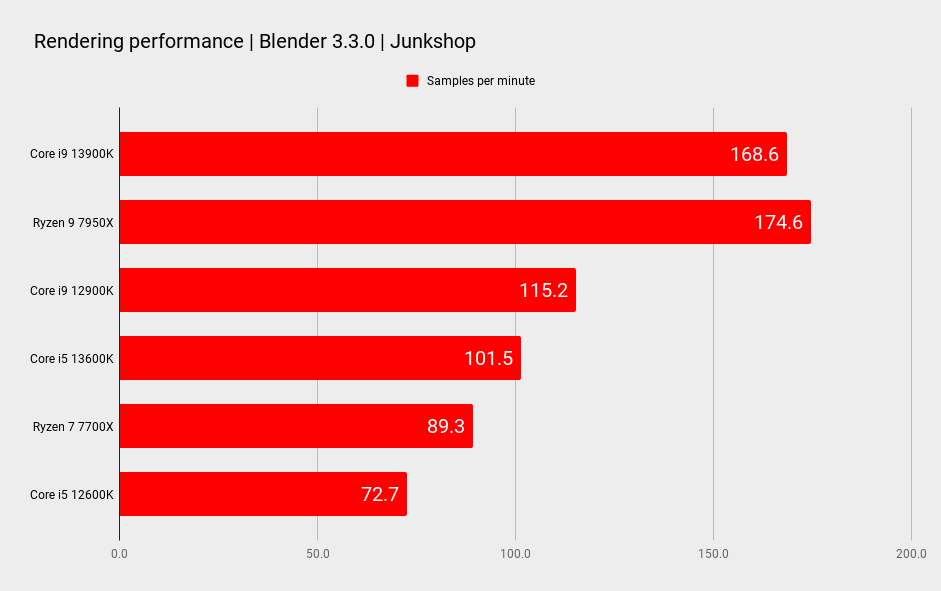
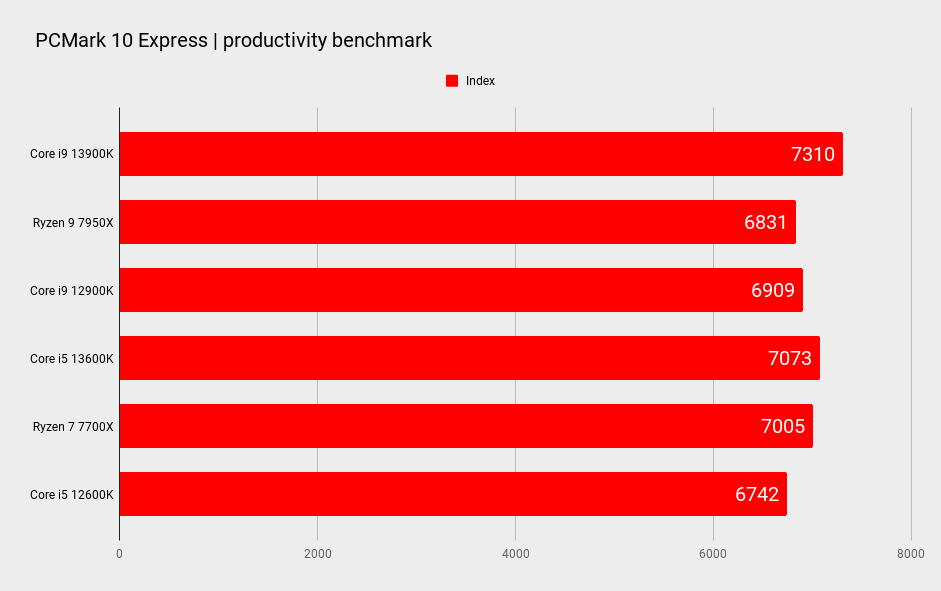
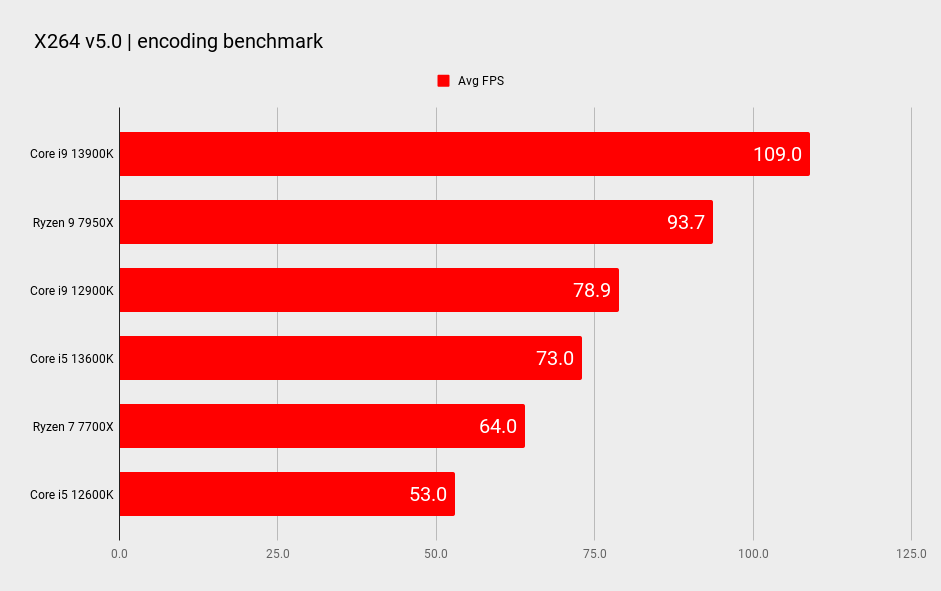
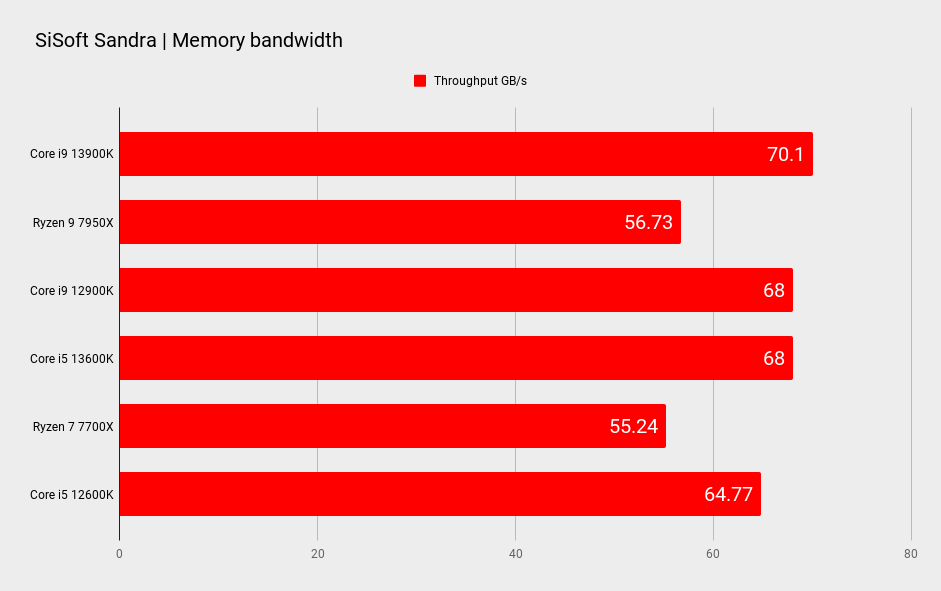
Alright, real-life performance won't see the Core i5 13600K matching the Core i9 12900K in every regard, but it really does deliver something similar in gaming for a lot less money.
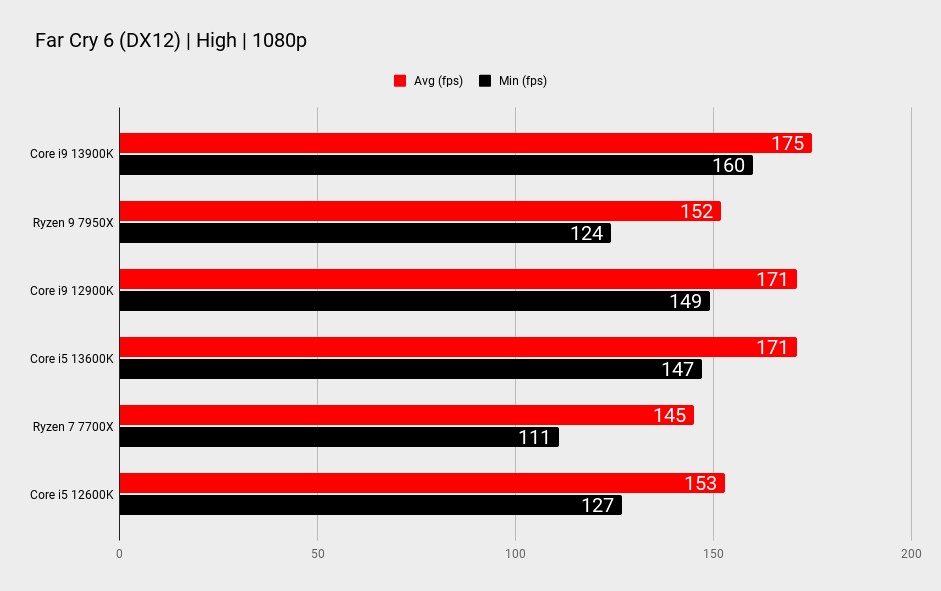
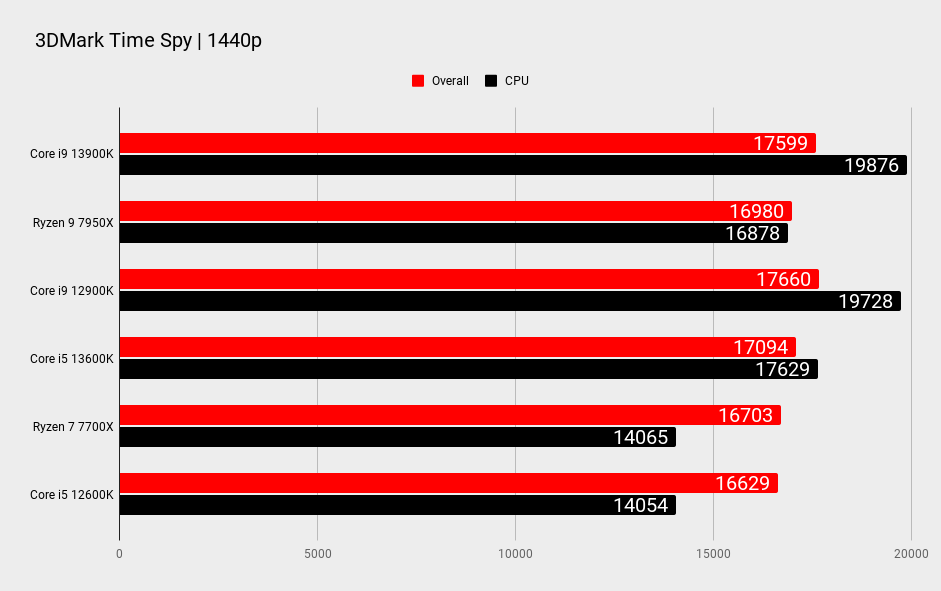
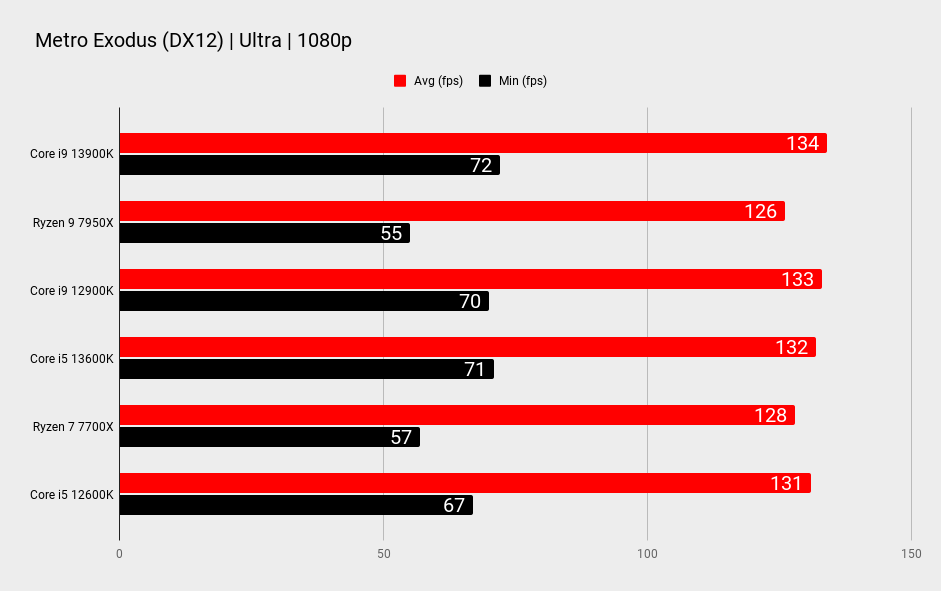
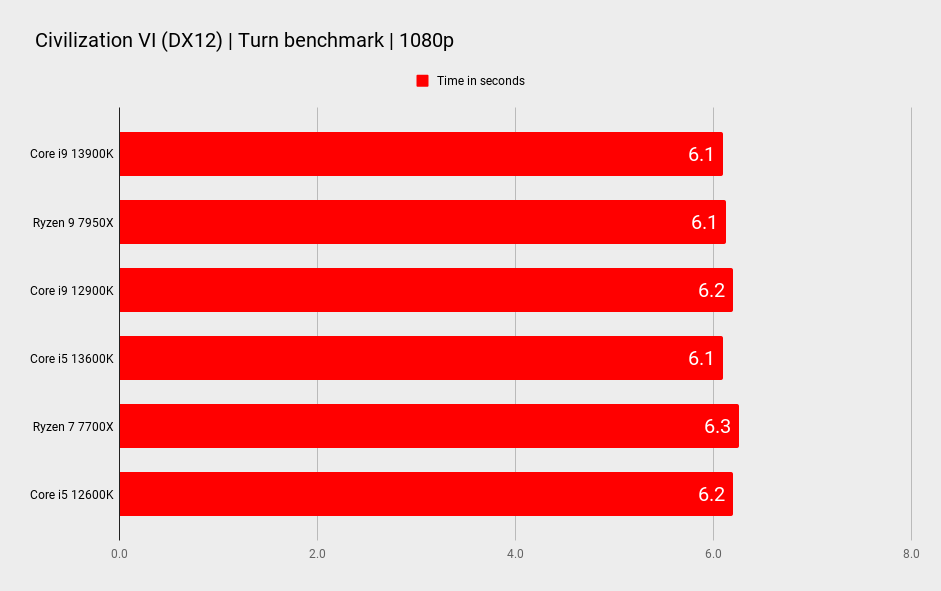
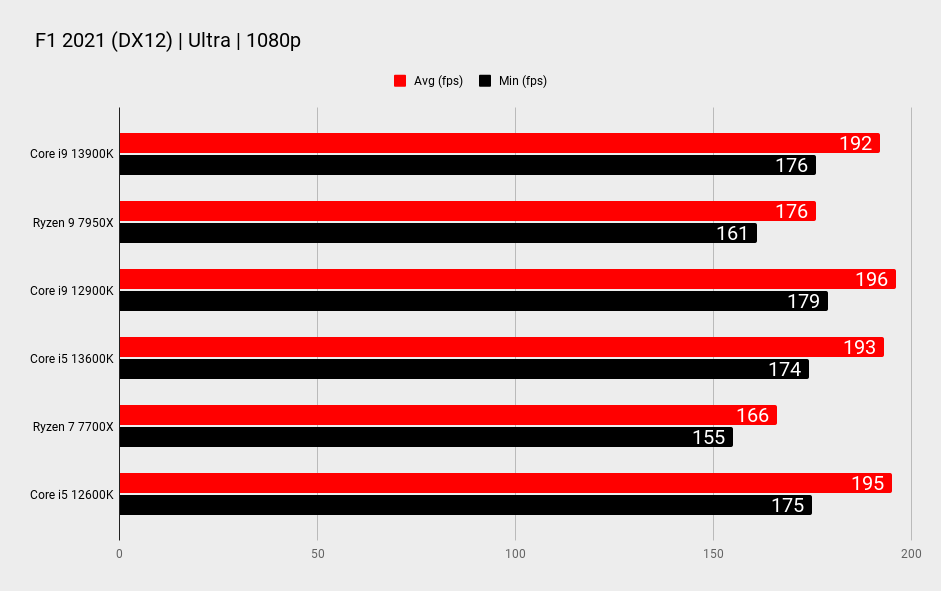
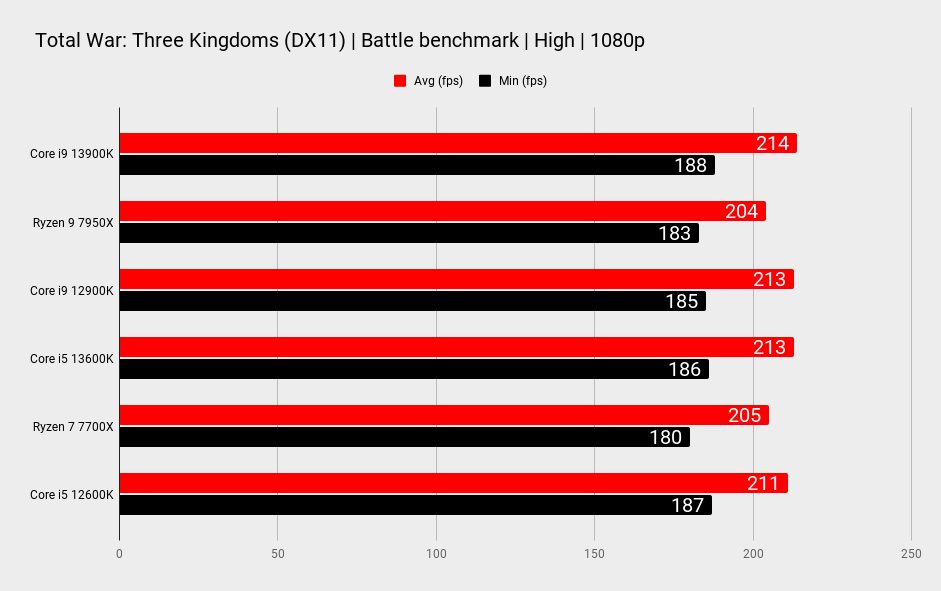
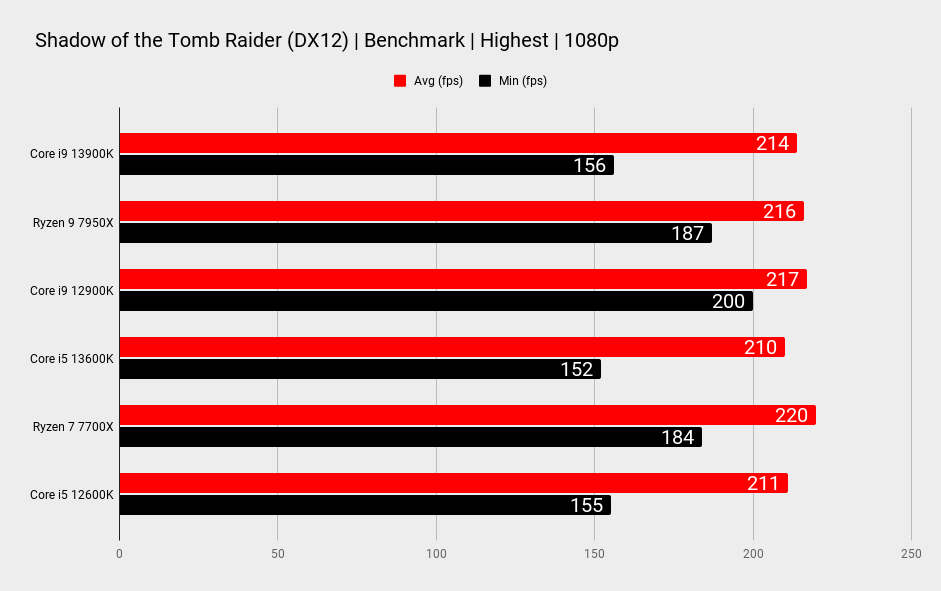
Intel
Motherboard: Asus ROG Strix Z690-F Gaming WiFi
Storage: 2TB Sabrent Rocket 4.0 Plus
Cooler: Asus ROG Ryujin II
PSU: Gigabyte Aorus P1200W
AMD
Motherboard: ASRock X670E Taichi
Storage: 1TB WD Black SN850
Cooler: Corsair H100i RGB
PSU: NZXT 850W
Shared
Memory: G.Skill Trident Z5 Neo DDR5-6000 CL30 2x 16GB
Graphics card: Nvidia RTX 3080 10GB
In three out of six games I've tested, the Core i5 13600K matches the pace of the Core i9 12900K. In one of those three, it actually outperforms the Core i9 chip. That's Civ 6, which admittedly has become a bit of a cakewalk for the latest generation of processors from Intel and AMD. But it's no less an excellent showing for the far cheaper CPU.
Speaking of AMD, the Core i5 13600K is looking increasingly impressive in the face of the competition. The Core i5 13600K beats the AMD Ryzen 7 7700X in all but a single game, Shadow of the Tomb Raider, and it doesn't let up in more productivity/creative workloads, such as Blender and x264. The blend of P-cores and E-cores appears to be working a treat versus even Zen 4's homogenous, and still mighty, core design.
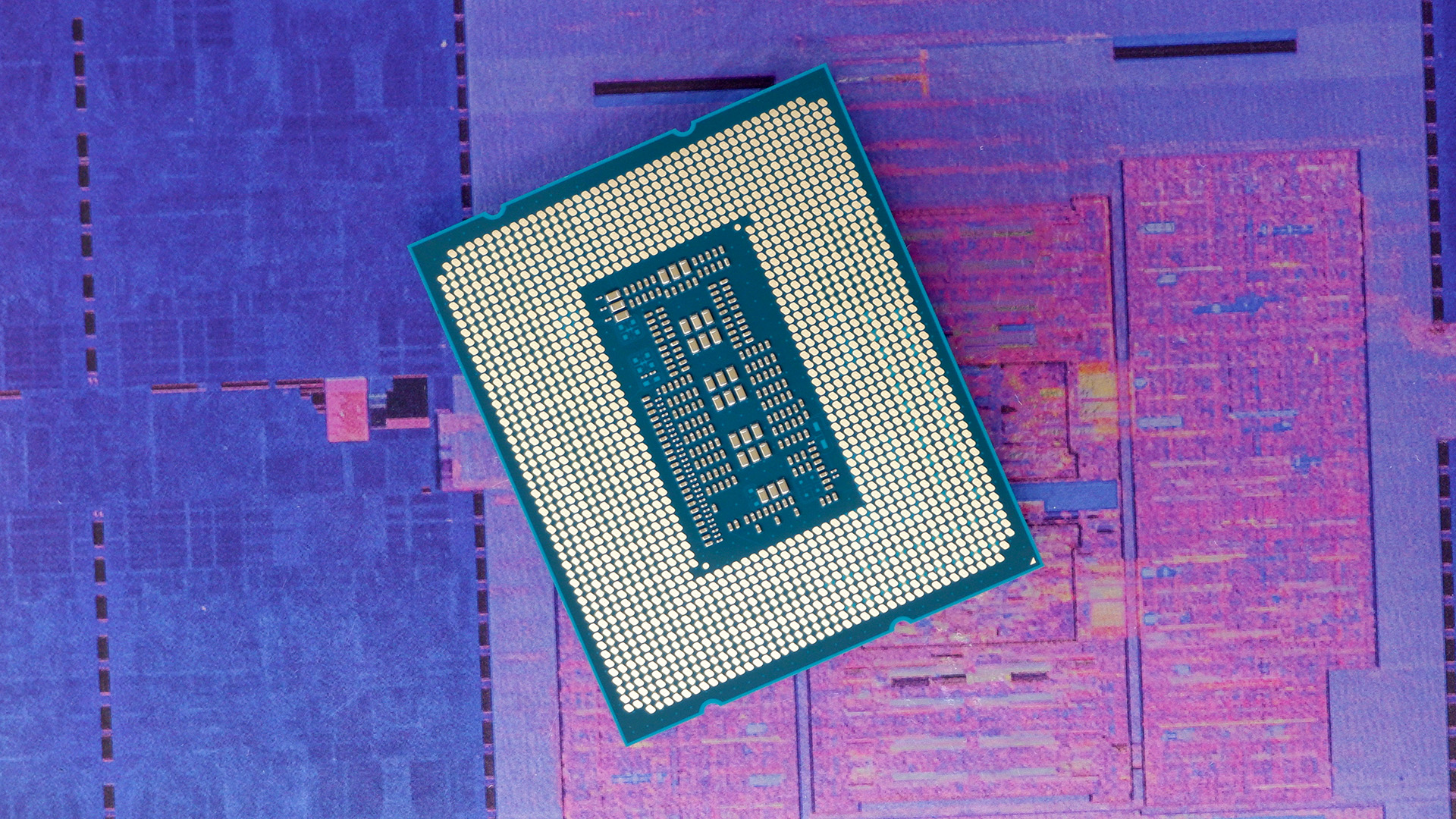
Even when it comes to power efficiency, which is usually not Intel's forte, the Core i5 13600K's more sensible clock speeds and core counts make for a much more efficient chip. It's relatively similar in terms of power draw in our x264 benchmark to the Ryzen 7 7700X, and it generally doesn't run as hot as the competition for that efficiency. That said, it does draw more from the wall than its predecessor, the Core i5 12600K. Compared to the Core i9 13900K, however, it's practically in a permanent eco-mode.
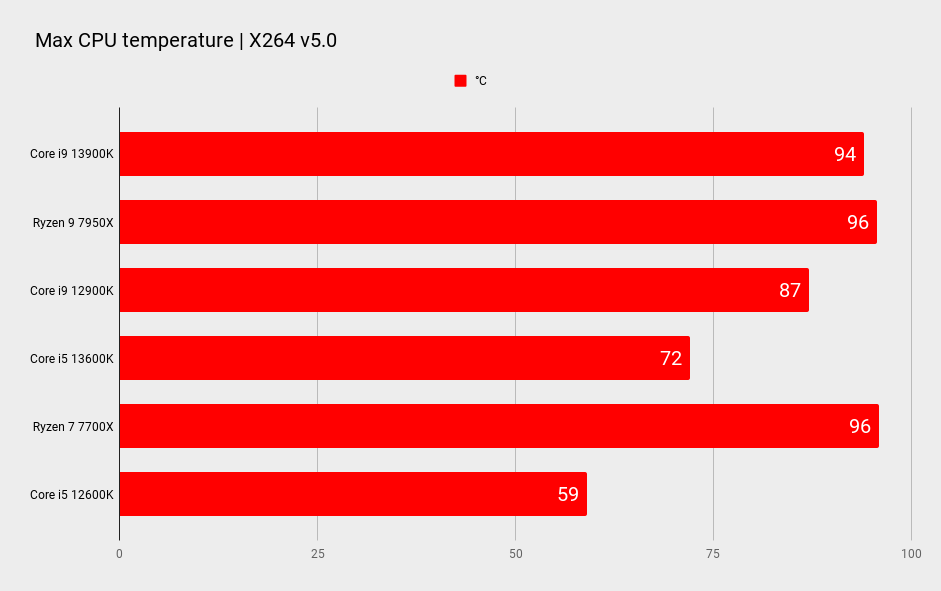
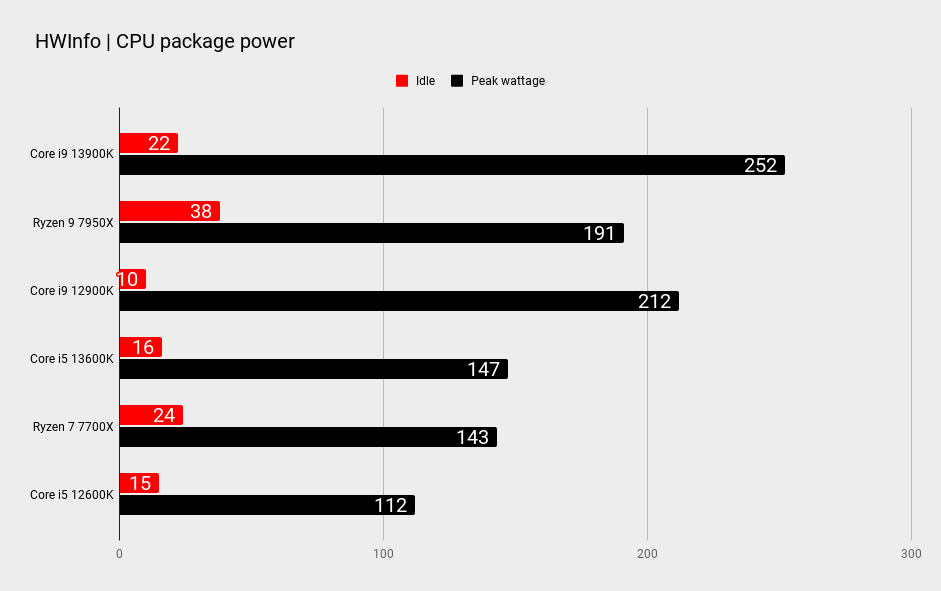
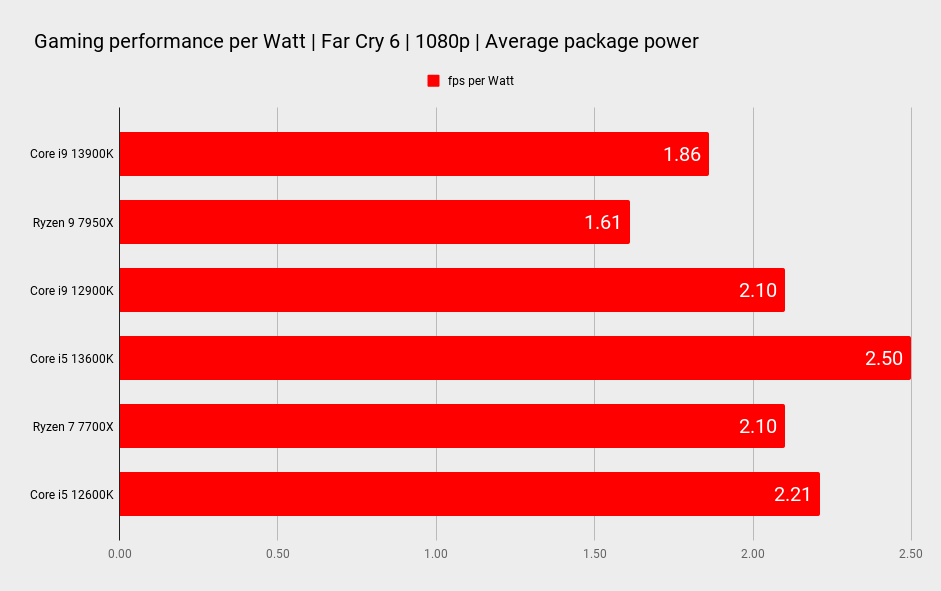
The Core i5 13600K is made that much better by its price versus the competition and against the 12th Gen. It's listed with a $319.00—$329.00 recommended customer price. Now, that is a great price for this sort of performance, but I should mention that may or may not exactly materialise on launch day. The on-shelf price may be upwards of that. But the thing to consider is that AMD seemingly has very little response to this chip with the existing Ryzen 7000-series lineup either way.
It would take a serious price cut to make the Ryzen 7 7700X the chip to buy at this price, and if the 7700X can't do it, the Ryzen 5 7600X can't either. Though the Ryzen 5 7600X is cheaper at $299, and so far there's no Raptor Lake chip under $300, so I'm not dismissing the cheaper option entirely here.
Intel also has the holistically cheaper chip in the Core i5 13600K. I suspect some builders will find a way to spend a bucket load of cash on their motherboard and RAM, rather than taking the cheap 600-series/DDR4 option, but if you wanted to you could save a lot of money on Intel's 600-series chipsets and more affordable RAM versus AMD's newer and generally dearer AM5 chipsets and DDR5 memory.
That pricing disparity might not remain for the lifetime of these chips, but at launch it's certainly a factor to consider. Both companies should have cheaper CPUs and chipsets available early next year to make life easier for budget builders, anyways.
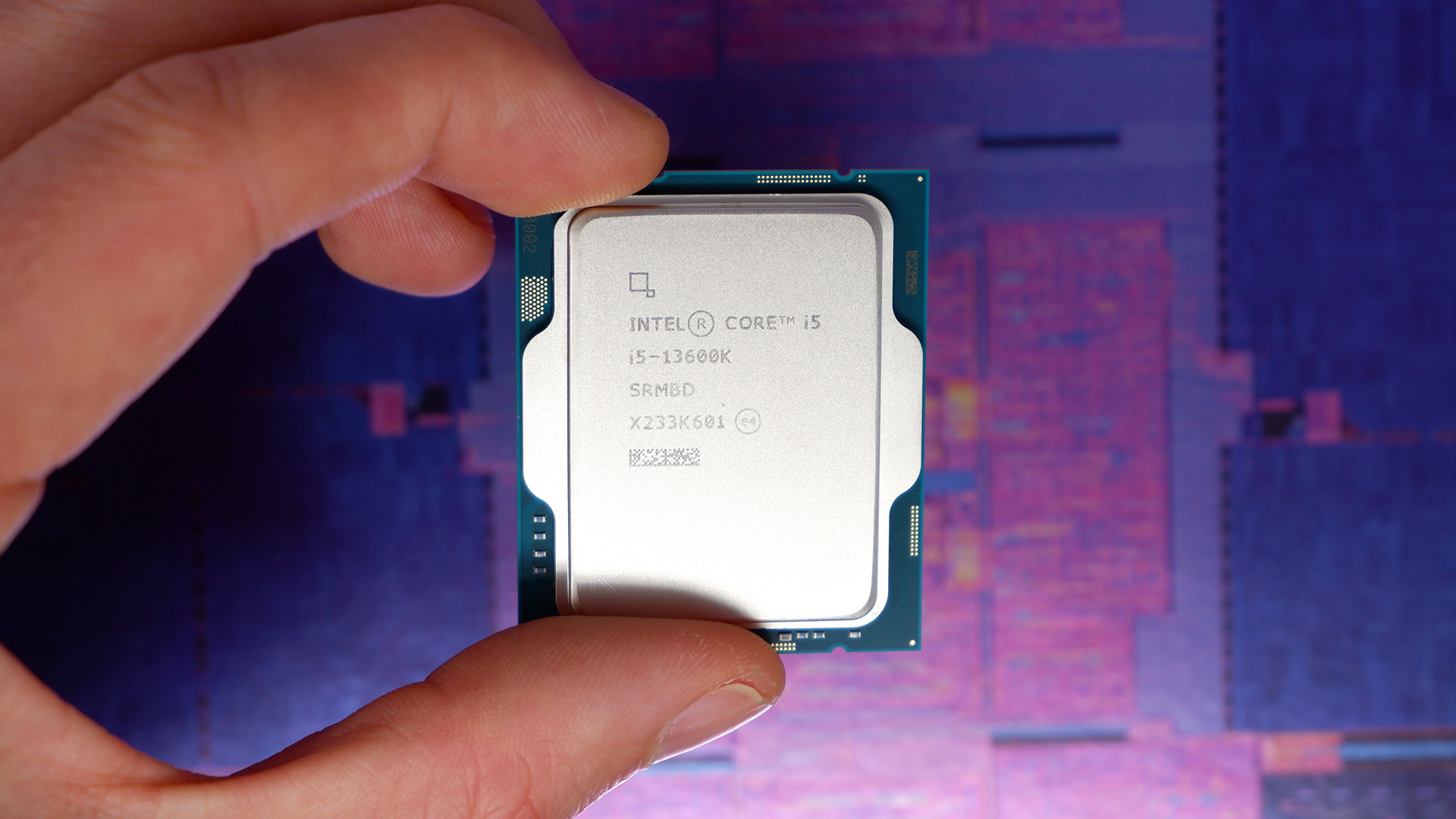
The Core i5 13600K is much more of an all-round powerhouse than I had expected it to be.
We're once again seeing the best gaming chip come from the lower rungs of the stack with Raptor Lake. The Core i5 13600K delivers exceptional gaming performance in a sensibly priced package, delivering only a handful of frames less than the processors that fetch double the asking price. For a gaming PC build in 2022/23, this is absolutely the chip I'd recommend to most.
But I'd go one further than that. The inclusion of four more E-cores turns this processor into a 14-core chip with the multithreaded performance to deliver in high-demand applications, and that makes it a great fit for streaming, content creation, editing, and more. The Core i5 13600K is much more of an all-round powerhouse than I had expected it to be.
So, if supply remains steady and the price sticks to the recommended figure, this is a shoe-in for the overall best CPU in 2022, and likely a good part of 2023, too.
The Core i5 13600K deserves to be at the heart of your next gaming PC build.

Jacob earned his first byline writing for his own tech blog. From there, he graduated to professionally breaking things as hardware writer at PCGamesN, and would go on to run the team as hardware editor. He joined PC Gamer's top staff as senior hardware editor before becoming managing editor of the hardware team, and you'll now find him reporting on the latest developments in the technology and gaming industries and testing the newest PC components.
